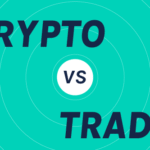Blockchain and Data Privacy: How Decentralization Protects Your Information

Introduction
In an increasingly digital world, data privacy has become a critical concern for individuals and organizations alike. Traditional centralized systems often expose users to risks such as data breaches, unauthorized surveillance, and misuse of personal information. Blockchain technology, with its decentralized nature, offers a novel approach to enhancing data privacy and security. This article explores how decentralization protects your information and highlights privacy-focused blockchain projects and encryption techniques shaping this evolving landscape.
The Privacy Challenge in Centralized Systems
Centralized databases collect and store vast amounts of sensitive user data in single locations, making them attractive targets for hackers and malicious actors. Additionally, central authorities control access to data, raising concerns about censorship, surveillance, and lack of transparency. These vulnerabilities have prompted the search for alternative architectures that empower users with greater control over their personal information.
How Decentralization Enhances Data Privacy
Blockchain’s decentralized design distributes data across a network of nodes, eliminating a single point of failure. This structure enhances security and resilience, making unauthorized data manipulation or breaches significantly more difficult. Furthermore, blockchain enables users to retain ownership and control over their data, deciding when, how, and with whom to share information.
Decentralized identities (DIDs) and self-sovereign identity frameworks built on blockchain allow individuals to authenticate themselves without relying on centralized intermediaries. This reduces reliance on third parties and minimizes unnecessary data exposure.
Privacy-Focused Blockchain Projects
Monero and Zcash: Privacy-Centric Cryptocurrencies
Monero and Zcash are leading blockchain projects designed to ensure transactional privacy. Monero employs ring signatures, stealth addresses, and confidential transactions to obfuscate sender, recipient, and transaction amounts, offering near-complete anonymity.
Zcash uses zero-knowledge proofs (zk-SNARKs) to allow users to verify transactions without revealing any underlying data, balancing privacy with selective transparency when needed.
Secret Network and Oasis Protocol: Encrypted Smart Contracts
These platforms advance privacy by enabling encrypted computation within smart contracts. Unlike traditional blockchains where contract data is publicly visible, Secret Network and Oasis Protocol keep sensitive data encrypted throughout execution, ensuring confidentiality while maintaining decentralization.
Encryption Techniques in Blockchain
Blockchain networks utilize advanced cryptographic methods to secure data and transactions. Public-key cryptography ensures only authorized users can access or sign information. Hash functions guarantee data integrity by producing unique digital fingerprints that detect any tampering.
Zero-knowledge proofs allow one party to prove knowledge of certain information without revealing the data itself, an essential tool for privacy-preserving protocols.
Challenges and Trade-offs
While blockchain enhances privacy, transparency is also a fundamental characteristic, which can conflict with confidentiality goals. Public blockchains expose transaction histories to all participants, which may not be suitable for all applications. Privacy solutions often add complexity and computational overhead, potentially impacting scalability and user experience.
Balancing privacy, security, and transparency remains an active area of research and innovation.
The Future of Data Privacy on Blockchain
As privacy regulations tighten globally and user awareness grows, demand for blockchain-based privacy solutions is increasing. Innovations like decentralized identity standards, homomorphic encryption, and advanced zero-knowledge proofs will further empower users to protect their data.
Collaboration between blockchain developers, cryptographers, and regulators is essential to develop frameworks that safeguard privacy without compromising security or compliance.
Conclusion
Decentralization fundamentally reshapes how personal data is managed and protected by distributing control away from centralized authorities. Through privacy-focused projects and cutting-edge encryption techniques, blockchain offers promising solutions to today’s privacy challenges. While hurdles remain, the ongoing evolution of privacy technologies within blockchain networks is set to provide individuals and businesses with greater control, security, and trust in the digital age.









